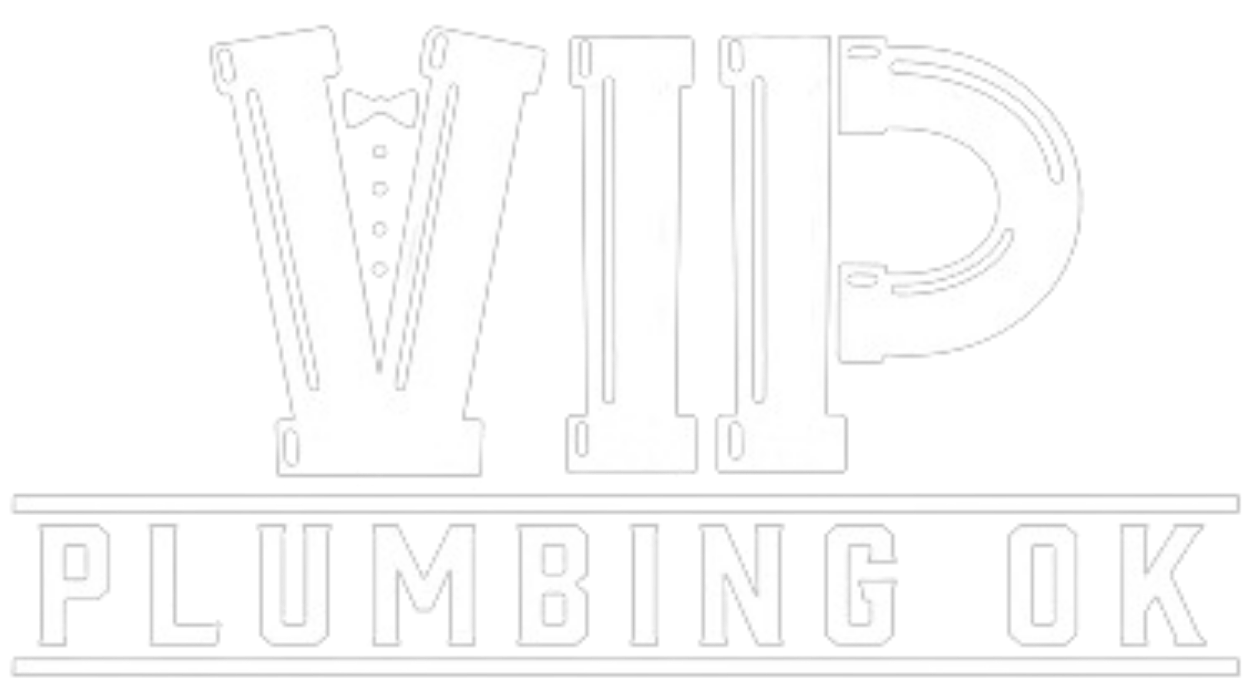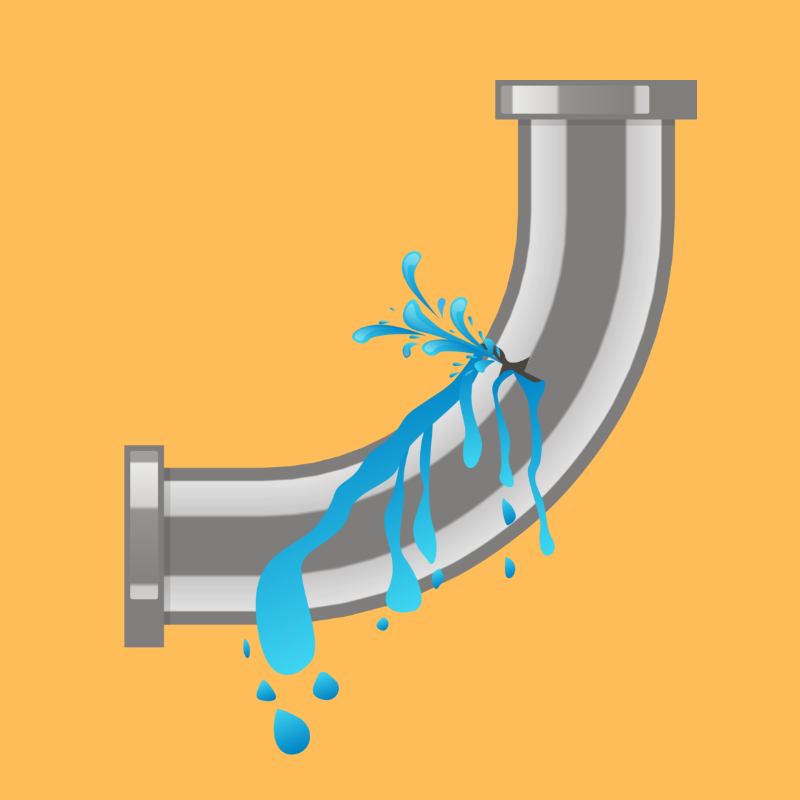The water entering your home or wastewater exiting it all travels through plumbing pipes. Some homes are built on cement slabs, which means their plumbing pipes run through and underneath the slab and are not as easily accessed as homes with crawl spaces or basements.
When these hidden plumbing pipes fail, it creates a condition known as a slab leak, and slab leaks are serious plumbing emergencies. Not only can a slab leak waste money it can also cause serious damage to a home and can lead to physical ailments from mold and mildew growth.
In this article, we will explain further what a slab leak is and how it can affect your home and its inhabitants. We will then look at the common causes of slab leaks and the early signs to watch for so help can be summoned immediately if you suspect you have one. Finally, we will explain the various methods available to repair a slab leak and restore your home to its preslab leak condition.
What Is A Slab Foundation?
Following WWII returning soldiers increased the demand for housing so profoundly that cement foundations were installed underneath new homes to save time and reduce the cost of construction. No longer were crawlspaces or basements dug out, but instead, a several-inch thick slab of concrete was laid to support the house’s walls.
The concrete slabs worked fine, but unbeknownst to the builders, the plumbing running through and beneath these slabs was more vulnerable to deterioration from erosion, corrosion, and other factors we will discuss in this article. This meant plumbing pipes began to fail earlier than anticipated based on the expected lifespan of the pipe material. Here we will discuss the common causes of these premature pipe failures.
Causes Of A Slab Leak
Slab leaks can occur at any time, and when they do, it is important to unveil their cause so future leaks can potentially be prevented. When the plumbing is first installed, there could be issues that do not reveal themselves until later.
Improper Installation
Plumbing pipes that do not have the proper slope can lead to slab leaks. Piping needs a correct pitch to drain properly, and if wastewater cannot flow, it will sit and encourage clogging, leading to broken pipes.
Plumbing joints sloppily connected will also leak and can erode surrounding soil or dump excess moisture behind walls and ceilings. This condition worsens in homes with unusually high water pressure adding even more stress to plumbing fittings.
External Issues
In the yard, metal pipe material is installed underneath the slab and comes in constant contact with the soil. Chemical reactions between pipe materials and substances in the
soil can reduce the durability of the pipe, causing it to fail. The piping is also in contact with the cement slab and can become damaged by rubbing against the slab.
The soil can also cause issues if it contains sharp or abrasive components that can rub against the pipe exterior and cause it to thin and burst. Weather fluctuations, earthquake activity, or other circumstances that can cause pipes to expand and contract or cause soil to shift can cause slab leaks. Erosion from small leaks can wash away soil supporting the plumbing pipes and/or the foundation leading to more severe leaking and bigger problems.
Internal Conditions
Slab leaks can be the result of acidic water or water that is rich in hard water minerals such as calcium and magnesium. These water qualities can attack pipes from the inside out, leaving pinhole leaks or pipes filled with corrosion in their wake. An interiorly damaged pipe is ripe for failure.
Aging Plumbing
Slab leaks are more prevalent in homes that are older and contain outdated plumbing. Constant wear and tear and failing pipe materials that have exceeded their expected lifespan are major contributors to slab leaks.
Early Signs Of Slab Leaks
The sooner a slab leak is detected, the less damage a home will incur, so it is important to identify a leak quickly. Here are some signs your plumbing pipes running through and under your cement slab need attention.
Domed Flooring
As water escapes the plumbing pipes, it is absorbed by the surrounding soil until t becomes overly saturated. Then the excess water begins pushing against the slab, causing the home’s flooring to buckle and arch into a dome shape easily visible from inside. A domed floor is a clear indicator of a hidden slab leak.
Wet Spots On Floors
As the water presses against the cement, it is also absorbed by the foundation, and when enough water has penetrated the slab, it will begin to come up through the flooring and carpets creating wet areas. Wet spots on the floor make it easy to identify the location of a slab leak but it can also destroy supporting infrastructures and weaken them to such a degree a home may need to be permanently abandoned for safety reasons.
Unusually High Water Bills
In today’s world of online banking and autopay options, it is easy to lose track of what you are being charged each month. It is important to review your bill details to avoid skyrocketing water bills that could go unnoticed. A slab leak will undoubtedly lead to spikes in your monthly bill and less in your wallet each month.
Low Water Pressure
As plumbing pipes spring a leak the water intended for your faucets and appliances is spilled into the yard. This accounts for a reduction in your water pressure, and while there are plenty of other plumbing issues associated with low pressure, a slab leak can certainly be at the top of the list!
Sound Of Running Water
During times of no water use, it is not uncommon for homeowners to hear running water behind walls or even outside. If you hear water running but are not intentionally using it, turn off your water and call for emergency help.
Cracks In The Foundation
When a slab leak occurs, water will erode the soil surrounding the pipe or soil that is supporting the slab. This reduced support causes the slab to shift and can cause the foundation, walls, and ceilings to develop deep cracks. Look for a slab leak as the cause of mysterious cracks.
Methods To Fix Slab Leaks
As you can imagine, finding and repairing slab leaks must be left to the professionals. These plumbing disasters require expert knowledge, specialized tools, and calculated detective work to identify the problem and find its location. Here we will discuss how we find and repair slab leaks.
Sound
Electronic amplification equipment can be used to listen to the plumbing line to find leaks. This method is especially good for slab leaks and requires a trained technician to operate the equipment and analyze the data correctly to locate leaks.
Jackhammering
This method is by far the most invasive. A jackhammer is used to remove a section of a slab where a leak has been identified. The leak is repaired, and the slab and flooring are replaced.
Digging
Sometimes it makes sense to locate a leak and then, beginning at an exterior wall, dig a tunnel to access the break in the plumbing line. The digging is done mostly by hand, so labor costs are higher than other repair methods.
Rerouting
In some cases, a damaged section of pipe is abandoned, and a new section is installed and repositioned through an exterior wall or attic space. This method is known as repiping or rerouting and is especially useful in older homes where more than one area of the aging plumbing has been affected.
Looking For A Professional Plumber You Can Trust To Repair Your Slab Leak?
To avoid serious structural damages or health-related issues brought on by slab leaks, immediate action must be taken to find and repair damaged areas. Ignoring early warning signs is a mistake, and hiring a plumber without the knowledge and skills related to slab leak remediation only compounds your problems.
We offer expert slab leak identification and repair services. We are available on an emergency basis to help customers identify the causes of their slab leaks and make the necessary repairs in a way that minimizes the chance of future reoccurrence. Call us if you see any early signs of a slab leak, and together we can devise a plan to restore your plumbing and give you the peace of mind you deserve!

